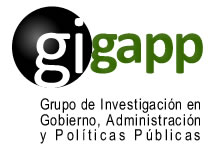Social Control and Transparency: Evaluation of the Access to Information Model in Brazil
Abstract
The main objective of this study is to assess whether the measures and actions implemented by the governors to improve the Brazilian public government model are contributing to raise the level of social control and transparency in public administration. We assume that the promotion of transparency and access to information is an essential measure for the strengthening of social control and democracy and, therefore, for the improvement of the quality of public management. It is a theoretical-empirical and bibliographical article, supported by the approaches of the governance, neoinstitutional and agency theories. Based on the literature, reports and legal regulations, we initially seek to identify the motivations that led to the adaptation and transfer of corporate governance experiences for the public sector. A field investigation was carried out to evaluate the quality of the information on public expenditures available in the transparency portals of the 200 most populous municipalities in the country. It concludes, finally, that there are still innumerable challenges and obstacles to be overcome in the sociocultural and institutional spheres. These difficulties are aggravated by deficiencies in the competence and ethical and moral values of the governors and politicians, essential to making viable good public governance, increasing transparency and increasing social control in Brazil.
Downloads
Copyright (c) 2017 José Matías Pereira

This work is licensed under a Creative Commons Attribution-NonCommercial-ShareAlike 4.0 International License.
Those authors who have publications with this journal, accept the following terms:
a. Authors will retain their copyrights and guarantee the journal the right of first publication of their work, which will be simultaneously subject to the Creative Commons Attribution-NonCommercial-ShareAlike 4.0 International (CC BY-NC-SA Recognition License). 4.0) that allows third parties to share the work as long as its author and its first publication are indicated in this journal.
Under this open access license, readers (users) can:
- Share — copy and redistribute the material in any medium or format
- Adapt — remix, transform, and build upon the material
Under the following terms:
-
Attribution — Users must give appropriate credit, provide a link to the license, and indicate if changes were made. You may do so in any reasonable manner, but not in any way that suggests the licensor endorses you or your use.
-
NonCommercial — Users may not use the material for commercial purposes.
-
ShareAlike — If remix, transform, or build upon the material, users must distribute your contributions under the same license as the original.
- No additional restrictions — Users may not apply legal terms or technological measures that legally restrict others from doing anything the license permits.
b. Authors may adopt other non-exclusive license agreements for the distribution of the version of the published work (eg: deposit it in an institutional telematic archive or publish it in a monographic volume) provided that the initial publication in this journal is indicated.
c. Authors are allowed and recommended to disseminate their work through the Internet (e.g. in institutional telematic files or on their website) before and during the submission process, which can lead to interesting exchanges and increase citations of the published work. (See The effects of open access).



